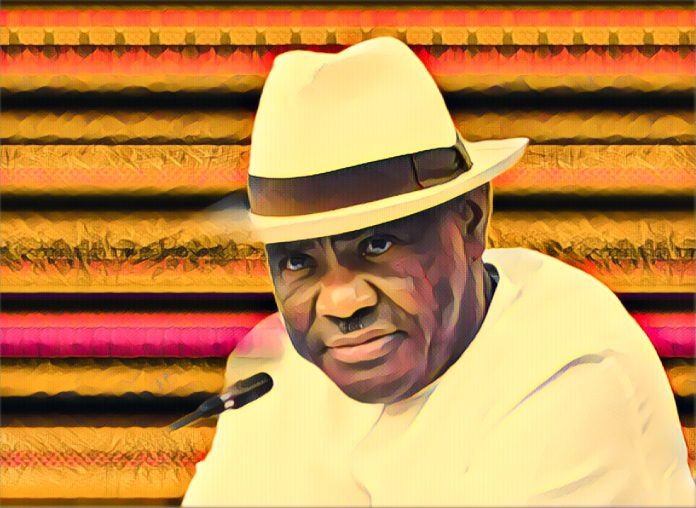Various challenges and controversies have stalled the Abuja Light Rail, a regional rail transport system that was supposed to ease traffic congestion and improve mobility in the capital city.
China Civil Engineering Construction Corporation (CCECC) won the project in 2007, which was initiated in 1997 but faced funding issues. President Buhari commissioned the first phase of the project, consisting of two lines and 12 stations, in 2018.
The COVID-19 pandemic forced the suspension of the service in 2020, as only three stations were operational. Since then, the project has not resumed, and the remaining nine stations are still under construction.
FCT Minister Unhappy with Contractors
President Tinubu appointed Nyesom Wike as the Minister of the Federal Capital Territory (FCT) in 2023. Nyesom Wike expressed his displeasure with the slow progress and poor design of the project.
He said he was passionate about the project and had received a directive from the president to ensure its completion by May 2024.
He lamented the security lapses, vandalism, and theft that have plagued the project, and blamed the FCT administration for awarding the contract for the perimeter fencing of the metro station to a different contractor from CCECC.
Wike also criticized the design of the stations and the access roads, saying they were not acceptable in China, the home country of CCECC.
He urged the contractors to speed up and improve their work, saying he would not be happy if the project failed to meet the deadline.
“I have always said to people that we owe a lot to this country. If you have been allowed to do something, it is not like you are the best, the most handsome, or the most beautiful; it is just that God, in his infinite mercy, has said that this is your turn, so try to make good use of it by satisfying members of the public,” he said.
However, some critics have questioned the viability, transparency, and accountability of the project, citing the lack of feasibility studies, environmental impact assessments, and public consultations.
They have also raised concerns about the debt burden, the maintenance costs, and the social and cultural impacts of the project.
Some stakeholders and experts expressed optimism that the project will eventually be completed and deliver its expected benefits.
They have called for more political will, public awareness, and stakeholder engagement to ensure the success of the project.
They have also urged the government and the contractors to adhere to the best practices and standards of rail transport and to address the issues of security, design, and quality.
The Abuja Light Rail project is a landmark initiative that has the potential to transform the transportation system and the urban landscape of the capital city.
Source: Vanguard



